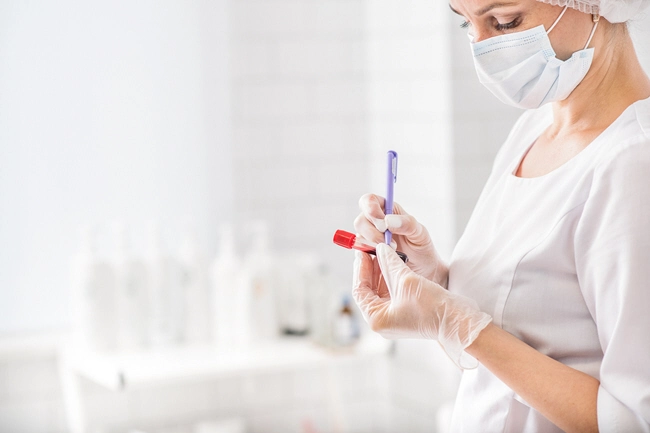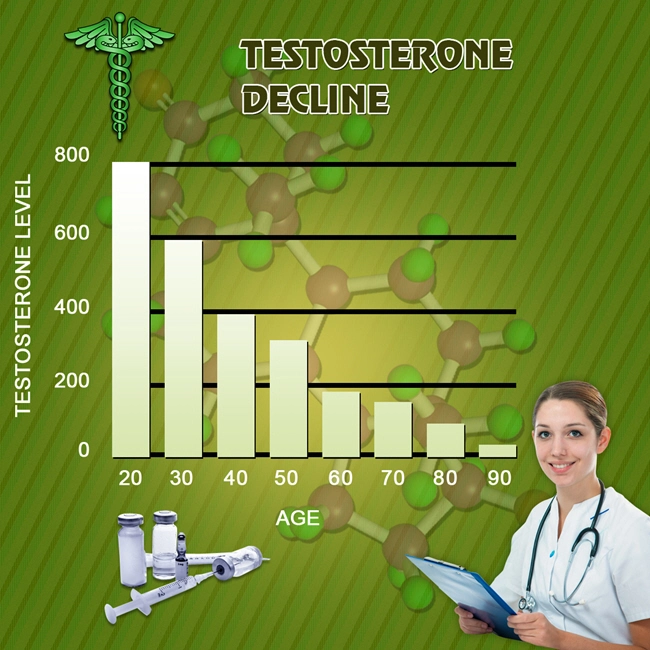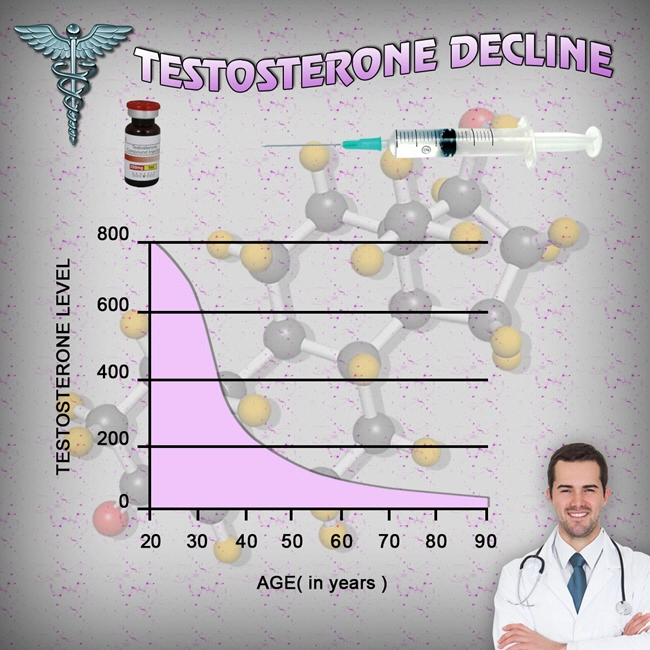
Video Link: https://vimeo.com/289160455
Video Download: Click Here To Download Video
Video Stream: Click Here To Stream Video
The Great Testosterone Debate:
Does testosterone cause severe health risks?
Or does testosterone protect from health problems?
Keep reading and discover the facts!
When discussing testosterone replacement therapy (TRT), there is one thing sure: there are substantial differences of opinion among medical professionals about TRT. This difference leads to the great testosterone debate.
 Some physicians are concerned that testosterone replacement therapy comes with potential adverse side effects and should only be prescribed for severe cases of hypogonadism (deficient testosterone levels).
Some physicians are concerned that testosterone replacement therapy comes with potential adverse side effects and should only be prescribed for severe cases of hypogonadism (deficient testosterone levels).
Other doctors disagree. According to these medical professionals, when appropriately used, testosterone replacement therapy delivers a broad range of health benefits for aging men with few if any side effects.
So who is correct? Should testosterone therapy be reserved for a small number of boys and men suffering from severely low testosterone levels (“Low-T”)? Or should physicians consider the many health problems that burden senior men to be a direct result of Low-T and thereby be prescribed TRT?
To answer those questions, here is a look at both sides of the great testosterone debate.
The Potential Risks of Testosterone Replacement Therapy
There is no question that TRT offers the promise of many health benefits: a muscular physique, exploding energy, a youthful libido, and a much-improved outlook on life.
As one physician stated: “They’ve got this notion that it's going to make them into this bodybuilder or Casanova.” But many medical professions dispute this and insist that TRT may hurt more than help.
Here is a list of potential side effects of TRT:
- Infertility. The rationale for the link between TRT and infertility is that when undergoing testosterone therapy, your brain stops signaling your body to make testosterone. If the treatment is continued for extended periods, the testicles could shrink. Obviously, if having children is in your plans, testosterone therapy may not be for you.
- Prostate cancer. This cancer association with testosterone has long been a warning against aging men receiving TRT. However, opinions have shifted, and
 the link between testosterone and prostate cancer has not been confirmed. But many doctors say the jury is still out on this issue and that TRT is not recommended for men with a pre-existing prostate problem.
the link between testosterone and prostate cancer has not been confirmed. But many doctors say the jury is still out on this issue and that TRT is not recommended for men with a pre-existing prostate problem. - Increased aggression and moodiness. Low-T and the physical deterioration that it brings often leads to depression. Testosterone therapy can boost a man’s mood. But this could result in “too much of a good thing” and lead to excessive aggression similar to ‘roid rage’ which is another phrase for a quick temper.
- Heart attack. This grim outcome of TRT is touted by law firms seeking men to represent in legal action against the sizeable pharmaceutical drug companies that manufacture and distribute testosterone. So far, in-depth research has not been able to cement the link between testosterone and cardiovascular disease. However, the US Food and Drug Administration (FDA) insists that a disclaimer about this risk must accompany prescription testosterone. Therefore, the link between testosterone therapy and cardiovascular disease remains in dispute.
- The risk of accidental transfer of testosterone gel. While preventable, there is the possibility of testosterone gel coming into contact with women and children -- with potentially severe adverse results.
- Swelling of the ankles and feet. Testosterone may cause your body to retain excess fluid, which can cause swelling in the ankles and feet. This is usually not a severe problem. But if the swelling persists your doctor must be notified.
- Acne and other skin changes. Like an uninvited guest crashing the party, the old teenage problem of acne may make an unwanted re-appearance in men undergoing testosterone treatment. This re-appearance is a result of testosterone boosting oil production under the skin. This may be a good thing since it can result in a healthy skin glow. But excessive oil can cause acne breakouts.
- Breast swelling, sleep apnea, and increased risk of blood clots and stroke. While rare, these possible side effects must be taken into consideration before beginning a TRT protocol.
- Testosterone is addictive. This side effect is purely psychological, but it is worth mentioning. Testosterone is a potent hormone and can affect brain chemistry. At first, these brain boosts can be beneficial and mood-boosting. But for some men depression, insomnia, and irritability can happen when the therapy is stopped or reduced. This possible side effect should not be ignored.
It’s a fact that virtually any prescription comes with a degree of risk. Before prescribing a drug treatment, physicians must weigh the risk/reward ratio. And that’s what we will do now.
There are Many Potential Benefits of TRT. Here are a Few of Them
- Prostate cancer protection. You read that right. Several studies have concluded that men with Low-T who received TRT had lower rates of prostate cancer antigen (Pca), a test used as a predictor of prostate cancer based on a genetic analysis of cells found in urine. Other studies have determined that, contrary
 to long-held medical beliefs, severe prostate cancer is directly linked to low testosterone.
to long-held medical beliefs, severe prostate cancer is directly linked to low testosterone. - Lower risk of cardiovascular disease. In a recent study published in the publication Annals of Pharmacotherapy, 6,355 elderly men who had received at least one testosterone injection were compared for risk of heart attack with 19,065 men who were not treated with testosterone. The researchers found no link for the added risk of heart attack. Unexpectedly the study found that men treated with TRT had a 16% lowered risk of heart attack. Men at high risk of heart attack enjoyed a 31% reduction of risk of the disease.
- Testosterone treatment reduced anemia in men with low testosterone. A new study conducted at Chonbuk National University in Jeonju, South Korea, stated that after 54 weeks TRT lowered the occurrence of anemia. The study consisted of 58 men between the ages of 18-80 who had testosterone levels below 2.35 ng/mL and were experiencing symptoms of low testosterone. The results concluded that when testosterone levels were restored to healthy levels, the cases of anemia dropped from 29.6% to 10%.
- Increased muscular development. TRT can increase both muscle size and strength. Testosterone makes muscles larger by boosting the number of cells that are precursors of muscle fibers; these cells are called “satellite cells.” These cells then enter into the muscles to make them bigger. Testosterone increases muscle strength by increasing the supply of calcium that is released from inside the muscle cell which accelerates the force of muscular contractions. These benefits are precisely what is needed in elderly men to prevent muscle atrophy (muscle wasting).
- Testosterone lowers the mortality risks of metabolic syndrome. Elderly men suffering from metabolic syndrome (elevated sugar, high blood pressure, excess fat, especially around the waist, and skyrocketing cholesterol and triglyceride levels) are at a much higher risk of developing deadly diseases such as heart attack, stroke, and diabetes. And low testosterone levels make a dangerous situation worse. In older men with metabolic syndrome researchers have established a direct link between metabolic syndrome and low testosterone.
- If additional studies confirm the link between low testosterone and metabolic syndrome, it will help medical professionals identify men who are at a higher risk of death and TRT may be added to their treatment protocol.
- Osteoporosis prevention. Numerous studies have concluded that the most common cause of male osteoporosis (bone thinning that makes bones brittle) is low testosterone levels. The latest figures reveal that more than 2 million men may suffer from this affliction and more than 12 million men are at risk for osteoporosis and may have early signs of osteopenia (low bone density). For all men in general, and for these men in particular, TRT may be precisely what is needed.
Hopefully, you can see both sides of the issue of testosterone replacement therapy. In spite of the many conflicting opinions, there are a few areas concerning hormones that have an almost universal medical consensus.
 One area of general agreement is the changing of the adult body due to the decline in hormones. As a direct result of this decline, we tend to pack on the pounds and accumulate fat as we age. Also, it becomes harder and harder to lose weight with diet and exercise, no matter how hard we try.
One area of general agreement is the changing of the adult body due to the decline in hormones. As a direct result of this decline, we tend to pack on the pounds and accumulate fat as we age. Also, it becomes harder and harder to lose weight with diet and exercise, no matter how hard we try.
Like a stealthily advancing army, fat begins to break through our body’s defenses and pop-up in new and odd areas that we never were worried about when we were younger.
Worse, it is a different and more insidious type of fat. Babies are loaded with brown fat, also known as “good fat” which is thermogenic (fat that produces heat and burns calories).
Adults, on the other hand, lose their brown fat and accumulate white fat (“the bad fat”). This coincides with the drop in our hormones.
White fat has receptors that bind to insulin. When this happens, fat cells produce more fat, and a vicious cycle is created. This cycle is linked to the loss of hormones including testosterone.
These hormonal medical facts are seldom disputed.
Another area of general medical agreement is this: virtually all medical professionals agree that undergoing TRT without medical supervision is extremely risky and may be hazardous to your health. There are many potential benefits of testosterone treatment and a wide array of possible adverse side effects. To prevent or at least minimize these side effects it is crucial to keep in mind that there is no “one-size-fits-all” testosterone treatment approach.
prevent or at least minimize these side effects it is crucial to keep in mind that there is no “one-size-fits-all” testosterone treatment approach.
A broad range of health factors must be clinically evaluated: the patient's age, overall health, current, and past diseases, and lifestyle.
The patient's medical history must be known in detail to determine if TRT can be applied safely and efficiently.
At our clinic safety is the top priority. If we discover that the risk of TRT outweighs the benefits, we will not, under any circumstance, proceed with a testosterone treatment regime, period. No matter what!
So there you have it. The pros and cons of testosterone replacement therapy. Is it right for you? Perhaps. But there is only one way to find out. Contact us for a free, no-obligation discussion.
References
The Great Testosterone Debate Getting Harder to Pin Down
Testosterone therapy: the hormone debate rages on
The Debate Over Testosterone Replacement in Aging Men
Contact Us Today For A Free Consultation
Dear Patient,
Once you have completing the above contact form, for security purposes and confirmation, please confirm your information by calling us.
Please call now: 1-800-380-5339.
Welcoming You To Our Clinic, Professor Tom Henderson.

- LabCorp Announces a Change to the Testosterone Reference Range [Last Updated On: April 16th, 2025] [Originally Added On: June 23rd, 2019]
- Important Facts About Testosterone Therapy Before Buying [Last Updated On: April 18th, 2025] [Originally Added On: July 13th, 2019]
- Soy: Does it Lower Testosterone? [Last Updated On: October 18th, 2024] [Originally Added On: August 30th, 2020]
- Testosterone Treatments May Successfully Reverse Type-2 Diabetes in Some Men [Last Updated On: April 15th, 2025] [Originally Added On: November 13th, 2020]
- Testosterone Replacement Therapy (TRT) May Prevent Heart Attacks and Diabetes [Last Updated On: April 21st, 2025] [Originally Added On: November 17th, 2020]
- Did You Know? Recent Studies Have Confirmed the Link Between Low Testosterone (“Low-T”) and Depression. [Last Updated On: April 17th, 2025] [Originally Added On: January 10th, 2021]
- New Study Finds Testosterone Does Not Increase Your Heart Attack Risk [Last Updated On: April 14th, 2025] [Originally Added On: January 11th, 2021]
- Testosterone Replacement Therapy Lowers Heart Attack Risk [Last Updated On: April 19th, 2025] [Originally Added On: January 18th, 2021]
- New Study Says: The Benefits of Testosterone Replacement Therapy Outweigh The Risks [Last Updated On: April 22nd, 2025] [Originally Added On: January 19th, 2021]
- Male Menopause. Fact or Fiction ? [Last Updated On: April 23rd, 2025] [Originally Added On: January 20th, 2021]
- Testosterone: How Much Do You Really Know About This Masculine Hormone? [Last Updated On: October 6th, 2024] [Originally Added On: February 9th, 2021]
- Low-T: What are healthy levels of Testosterone and why is it difficult to measure? [Last Updated On: September 11th, 2025] [Originally Added On: April 3rd, 2021]
- Testosterone Therapy May Be Good for the Heart if You Have Low-T [Last Updated On: May 3rd, 2025] [Originally Added On: July 21st, 2021]
- A Recent Study Concludes: Testosterone DOES NOT Cause Prostate Cancer [Last Updated On: September 14th, 2025] [Originally Added On: August 16th, 2021]
- In the Battle Against Aging, When do the Risks Outweigh the Rewards? [Last Updated On: April 4th, 2025] [Originally Added On: August 18th, 2021]
- New Study Concludes: Boosting Testosterone Levels Lowers Men's Death Risk [Last Updated On: May 11th, 2025] [Originally Added On: August 20th, 2021]
- Testosterone Replacement Therapy Slows Prostate Cancer! [Last Updated On: April 2nd, 2025] [Originally Added On: September 13th, 2021]
- Research proves that Testosterone Therapy Boosts Fertility! [Last Updated On: April 5th, 2025] [Originally Added On: September 26th, 2021]
- Free Testosterone and Sex Hormone-Binding Globulin [Last Updated On: April 6th, 2025] [Originally Added On: October 15th, 2021]
- Testosterone Does Not Cause Heart Attacks [Last Updated On: April 7th, 2025] [Originally Added On: October 15th, 2021]
- Testosterone and Women [Last Updated On: April 8th, 2025] [Originally Added On: October 15th, 2021]
- Testosterone and Metabolic Syndrome [Last Updated On: April 3rd, 2025] [Originally Added On: October 15th, 2021]
- Testosterone and Disease Prevention [Last Updated On: March 31st, 2025] [Originally Added On: October 15th, 2021]
- Judge Vacates $140 Million Verdict in Testosterone Lawsuit [Last Updated On: April 1st, 2025] [Originally Added On: October 15th, 2021]
- Testosterone and Estrogen [Last Updated On: April 9th, 2025] [Originally Added On: October 16th, 2021]
- Testosterone and Aging [Last Updated On: April 10th, 2025] [Originally Added On: October 16th, 2021]
- Testosterone Replacement Therapy (TRT) Benefits [Last Updated On: April 11th, 2025] [Originally Added On: October 16th, 2021]
- Testosterone and Male Menopause [Last Updated On: March 30th, 2025] [Originally Added On: October 16th, 2021]
- Testosterone Battles Obesity [Last Updated On: March 29th, 2025] [Originally Added On: October 16th, 2021]
- Why You Need Testosterone Replacement Therapy [Last Updated On: May 14th, 2025] [Originally Added On: October 16th, 2021]
- Testosterone FAQ's [Last Updated On: May 13th, 2025] [Originally Added On: October 25th, 2021]
- How Testosterone Impacts Sexual Preferences In Men and Women [Last Updated On: March 28th, 2025] [Originally Added On: October 30th, 2021]
- Growth Hormone and The Thyroid Gland [Last Updated On: April 24th, 2025] [Originally Added On: November 19th, 2021]
- How Does Masturbation Affect Testosterone Levels? Exploring the Science [Last Updated On: May 24th, 2025] [Originally Added On: March 27th, 2022]
- Testosterone Therapy Increasingly Used to Help Men Take Control of Aging [Last Updated On: May 25th, 2025] [Originally Added On: May 30th, 2022]
- The many benefits of Testosterone Replacement Therapy (TRT) [Last Updated On: November 1st, 2025] [Originally Added On: June 13th, 2022]
- Tlando Testosterone - A Brand New Way to Treat Low-T Safely with a Testosterone Pill [Last Updated On: May 28th, 2025] [Originally Added On: July 12th, 2022]
- Safe Tlando Testosterone Changes Landscape of Low-T Therapy [Last Updated On: May 30th, 2025] [Originally Added On: August 15th, 2022]
- Systems to Monitor Testosterone Replacement Therapy (TRT) [Last Updated On: October 12th, 2025] [Originally Added On: September 21st, 2022]
- Testosterone May Help You Keep Your Job (Or Find Another) [Last Updated On: June 12th, 2025] [Originally Added On: October 4th, 2022]
- Toxic Chemicals are Killing your testosterone…And your Manhood! [Last Updated On: October 28th, 2024] [Originally Added On: October 10th, 2022]
- A new study reveals that Testosterone improves body composition in men with low testosterone! [Last Updated On: October 22nd, 2025] [Originally Added On: October 17th, 2022]
- A former Mr. Olympia speaks about testosterone [Last Updated On: October 10th, 2025] [Originally Added On: November 8th, 2022]
- Testosterone Blockers Thwart Melanoma [Last Updated On: June 9th, 2025] [Originally Added On: December 11th, 2022]








